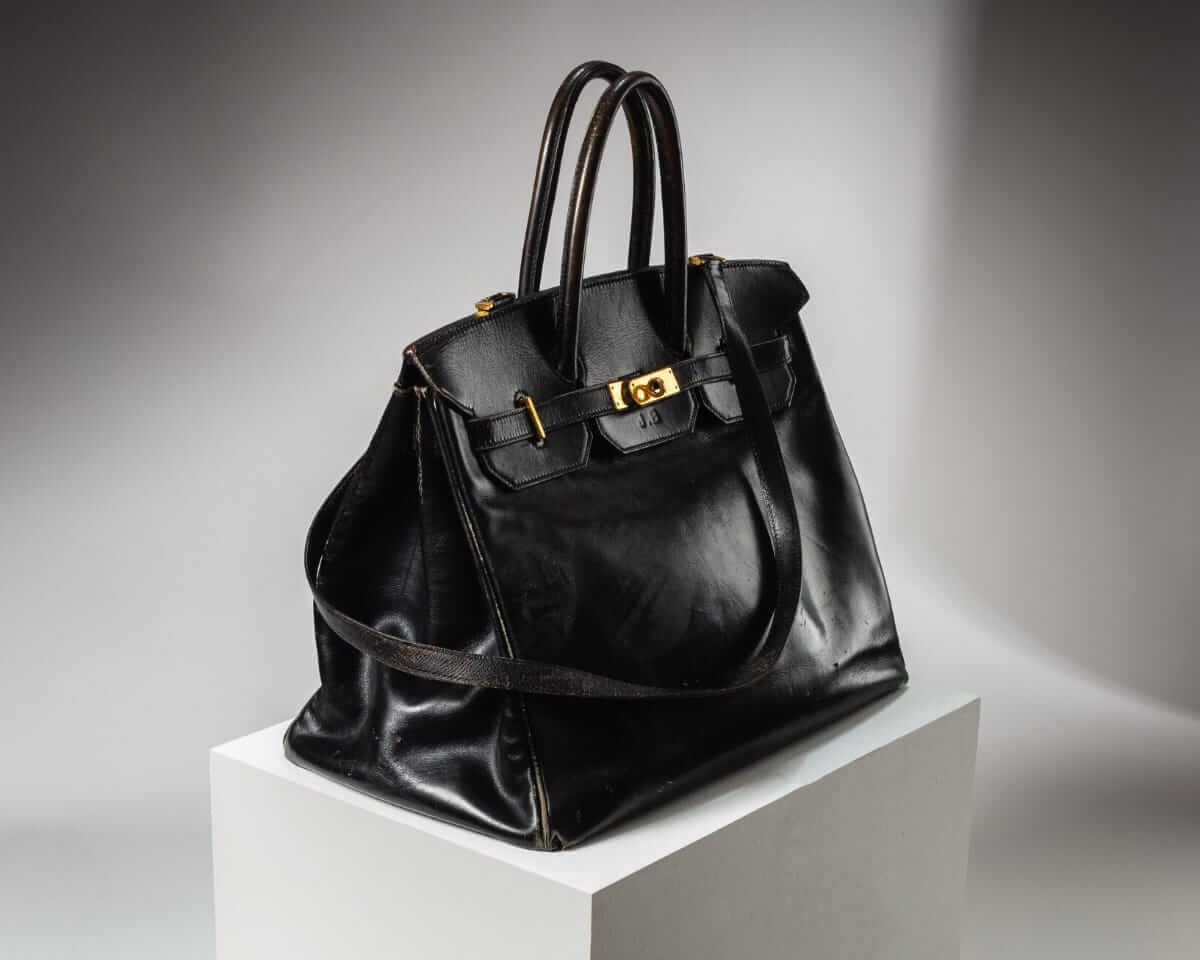Friday, July 11th Edition |

|
By Cory Ohlendorf, Valet. EditorIt's a very Japan-focused newsletter today. Count the references. |
Today’s Big Story
Who Drank All the Matcha?
Dedicated green tea drinkers are rationing, squabbling—and hating on hoarders

It’s a healthier alternative to coffee. It’s packed with antioxidants and has the caffeine to jolt you awake. And if you’ve recently gotten into matcha, you’re not alone. The bright green tea is now a staple on most coffee shop menus. There are even several shops dedicated to serving different types of matcha lattes and beverages. The tea is also quite popular on social media, with influencers whipping up their matcha drinks or sharing their favorite green tea products.
The online community for matcha lovers, which helped propel the powdered tea’s worldwide popularity, is usually a place where enthusiasts share their golden matcha-to-milk ratio, review different brands and show off their whipping skills, maybe flex a mixing bowl or authentic bamboo whisk. But what’s brewing on MatchaTok lately is trouble.
According to the Wall Street Journal, “matcha’s meteoric rise in popularity, along with a proliferation of resellers who buy large quantities of the tea from the small number of Japanese vendors who produce it each year, has triggered a global shortage and a steep jump in prices.” The market turmoil has spurred a fierce debate among the matcha faithful about who exactly is responsible for the dwindling supply—and who deserves to drink it. “They have taken to policing how many grams of matcha is acceptable to use in a latte. People who keep multiple tins in their collections are criticized by matchaholics who point out matcha’s limited shelf life.”
Japan is trying to keep up but it’s challenging. The country’s Ministry of Agriculture, Forestry and Fisheries reports that 4,176 tons of matcha were produced in 2023, a threefold increase since 2010. Ballooning in parallel is Japan's tourism industry: 2024 saw nearly 37 million tourists, a record high. Last year, major tea manufacturers in Japan announced purchasing limits on finely ground tea powder, The Japan Times reported, adding that cafe customers also found “sold out” signs across major cities in the nation.
For moneyed travelers, accumulating tins in Japan has become a competitive sport. In Uji, the matcha capital of the world, some locals are now vying with tourists for the tea. Marukyu Koyamaen, which has been producing matcha in the Uji region since 1704, said in November that it will no longer sell matcha powder at its shop in the JR Kyoto Isetan department store because of “a congestion at the opening hours with customers hurrying into the store.”
Dig Deeper: |
Social media has completely transformed how we consume, and it's not just matcha. |
Protesters Clash With Federal Agents
Officers appeared to use crowd control munitions and tear gas against protesters
Federal agents raided a large cannabis farm in Southern California, clashing with protesters and arresting multiple people, the latest confrontation in a state that has become a flashpoint for President Donald Trump’s immigration agenda. According to ABC News, it was one of at least two large-scale raids in the region on Thursday.
Footage taken by local news media from helicopters showed the agents firing tear gas and crowd control munitions during the operation. The agents were “executing criminal search warrants,” Tricia McLaughlin, a spokeswoman for the Department of Homeland Security, said on social media. Rodney Scott, the commissioner of Customs and Border Protection, posted that “10 juveniles,” eight of them unaccompanied, were found at one of the facilities raided on Thursday, and that all of them were in the country illegally.
“It‘s becoming increasingly apparent that the actions taken by ICE are bold and aggressive, demonstrating insensitivity towards the direct impact on our community,” Luis Mc Arthur, the mayor of nearby Oxnard, told Fox News. “These actions are causing unnecessary distress and harm. I remain committed to working alongside our Attorney General and the Governor’s office to explore potential legal avenues to address these activities.” Los Angeles and eight other cities have sued the Trump administration, calling the tactics used by federal agents “unconstitutional,” arguing they are being used to instill fear rather than to protect the public.
Meanwhile: |
During the clash, a person appeared to fire a pistol at law enforcement officers, the F.B.I. said, offering up to a $50k reward for information leading to a conviction. |
Big Birkin Bucks
A lively bidding war led to the bag selling for far more than expected

A regular Hermès Birkin bag is already worth thousands of dollars. But the one that started it all? Jane Birkin’s original bag—the prototype of the now-famous purse that was designed and named for the actress and singer—sold for a whopping 8,582,500 euros (or about $10 million) at auction Thursday in Paris. It’s now the most valuable fashion item sold at auction in Europe, according to Sotheby’s. The sale surpassed even a hat that had belonged to Napoleon Bonaparte.
As the story goes, Birkin sat next to Hermès executive Jean-Louis Dumas on a fateful flight from Paris to London in the early 1980s. She needed a bag with more space than her usual wicker baskets, and together they came up with a structured tote with two handles. This first bag was believed to be created in 1985.
The bidding war’s winner? An anonymous Japanese buyer. While Sotheby’s did not reveal details of the buyer, a source with knowledge of the sale told ARTnews that Lauren Sanchez, the new Mrs. Jeff Bezos, was an anonymous underbidder on the bag. (However, a source close to Sanchez and Bezos denied that she had bid.) Some Kardashians and even the Hermès were all believed to be bidding as well. One fashion writer asked “is this it-girl inflation?” Because another of Birkin’s Birkins (she had five during her lifetime) sold back in 2021 for $160,000, which is a dear sum but nothing compared with this jaw-dropper.
FYI: |
Each Birkin bag is meticulously handcrafted by a single artisan, taking around 18 to 48 hours to complete, and features hand-stitched leather. |
The ‘Click-to-Cancel’ Rule Was Killed
But some hope that consumer advocates could revive it
A “click-to-cancel” rule, which would have required businesses to make it easy for consumers to cancel unwanted subscriptions and memberships, has been blocked by a federal appeals court just days before it was set to go into effect. This is a damn shame, as anyone who’s had to jump through hoops to cancel something knows.
What would have happened if this updated FTC rule had gone into effect on July 14 as planned? “The stated goal was that they wanted to make it as easy for you to cancel a subscription as it is to sign up,” John Breyault, vice president of public policy, telecommunications, and fraud at the National Consumers League tells WIRED. How reasonable! It’s the type of rule that sounds like it should already exist as part of baseline consumer protections. If I can sign up for a gym membership or a news website subscription or a food delivery service with just a few seamless taps on my smartphone, then why am I so often thrown into a labyrinth of puzzles—with people to call or in-person locations to visit—whenever I want to opt out from one of the recurring subscription charges?
In the 3-0 ruling, the panel of judges on the appeals court said the FTC had failed in its rule-making process by failing to produce a preliminary regulatory analysis. By law, the commission is required to produce such an analysis if a rule’s annual effect on the U.S. economy would exceed $100 million. While deep-pocketed business interests will likely try to block any future attempts to mandate a simplified cancellation process, a deep-set hunger for change from consumers, fueled in part by righteous indignation, may eventually prevail. Bill Baer, a visiting fellow at the Brookings Institution and former member of the FTC, says “it'll take some time, but it's an important benefit to consumers” worth pursuing.
FYI: |
The average American has four to six subscriptions and pays an average of $924 per year, with streaming being the most popular type of subscription. |
|
|
|||||||||





